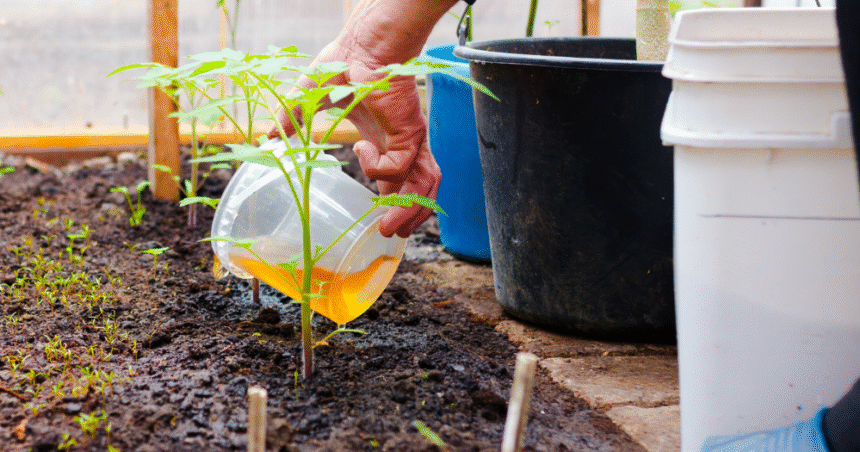Compost tea has become a favorite among gardeners and farmers looking for a natural way to boost plant health and soil fertility. This liquid fertilizer, made by steeping compost in water, introduces a rich community of beneficial microbes directly to your plants. When brewed properly, compost tea improves nutrient availability, strengthens plant immunity, and promotes vigorous growth. Below are some of the best compost tea recipes tailored to maximize plant growth in different settings.
The classic compost tea starts with high-quality, mature compost. It should be rich in organic matter and free of synthetic additives. To prepare, mix one part compost with five to ten parts non-chlorinated water in a large container. Let the mixture steep for 24 to 48 hours, stirring occasionally to keep the microbes active. Once brewed, strain the liquid and apply it directly to the soil or as a foliar spray. This basic tea provides a balanced mix of nutrients and microbes suitable for most plants.
For a more potent growth booster, try an aerated compost tea. This version introduces oxygen into the brewing process, encouraging the growth of aerobic microbes that are especially beneficial for plants. To make it, combine one part compost with ten parts dechlorinated water, then add a source of sugar like molasses (1 to 2 tablespoons per 4 liters) to feed the microbes. Use an aquarium pump and air stone to keep the mixture aerated during the 24- to 36-hour brewing period. The result is a microbial-rich solution that enhances root development and nutrient uptake.
Another effective compost tea for plant growth includes additional amendments like kelp meal and fish hydrolysate. These ingredients add trace minerals, growth hormones, and proteins that support overall plant vigor. To make this tea, add 1 tablespoon of kelp meal and 1 tablespoon of fish hydrolysate per 4 liters of water along with compost and molasses. Aerate the mixture for 24 to 36 hours. This blend is especially useful for heavy-feeding crops like tomatoes, peppers, and squash.
Worm castings can also be used in place of regular compost to make a gentle yet powerful tea. Worm castings contain concentrated nutrients and beneficial bacteria that promote strong plant growth and disease resistance. Mix one cup of worm castings with 4 liters of water and let it steep for 24 hours, stirring occasionally. This tea is ideal for seedlings, transplants, and sensitive plants due to its mild yet effective formula.
For leafy greens and herbs, a nitrogen-rich compost tea works wonders. Use compost that includes a high proportion of green materials like grass clippings or alfalfa. These add nitrogen, which encourages lush, green foliage. Follow the same steeping process as the basic recipe but reduce the steeping time to 24 hours to prevent anaerobic conditions. Apply the tea to the soil every 1–2 weeks during the growing season.
To use compost tea effectively, apply it early in the morning or late in the afternoon to avoid rapid evaporation and sun damage. Whether poured into the soil or sprayed on the leaves, the tea should be used immediately after brewing to ensure the microbes are still active. Store leftovers in a cool place for no more than a day, as microbial populations decline quickly once brewing stops.
Regular use of compost tea builds healthier soil, promotes vigorous plant growth, and reduces the need for synthetic fertilizers. It’s an easy, affordable, and sustainable solution for gardeners and farmers alike. With the right ingredients and brewing method, compost tea can be a game changer in your plant care routine.
Join 'Farmers Mag' WhatsApp Channel
Get the latest Farming news and tips delivered straight to your WhatsApp
CLICK HERE TO JOIN






